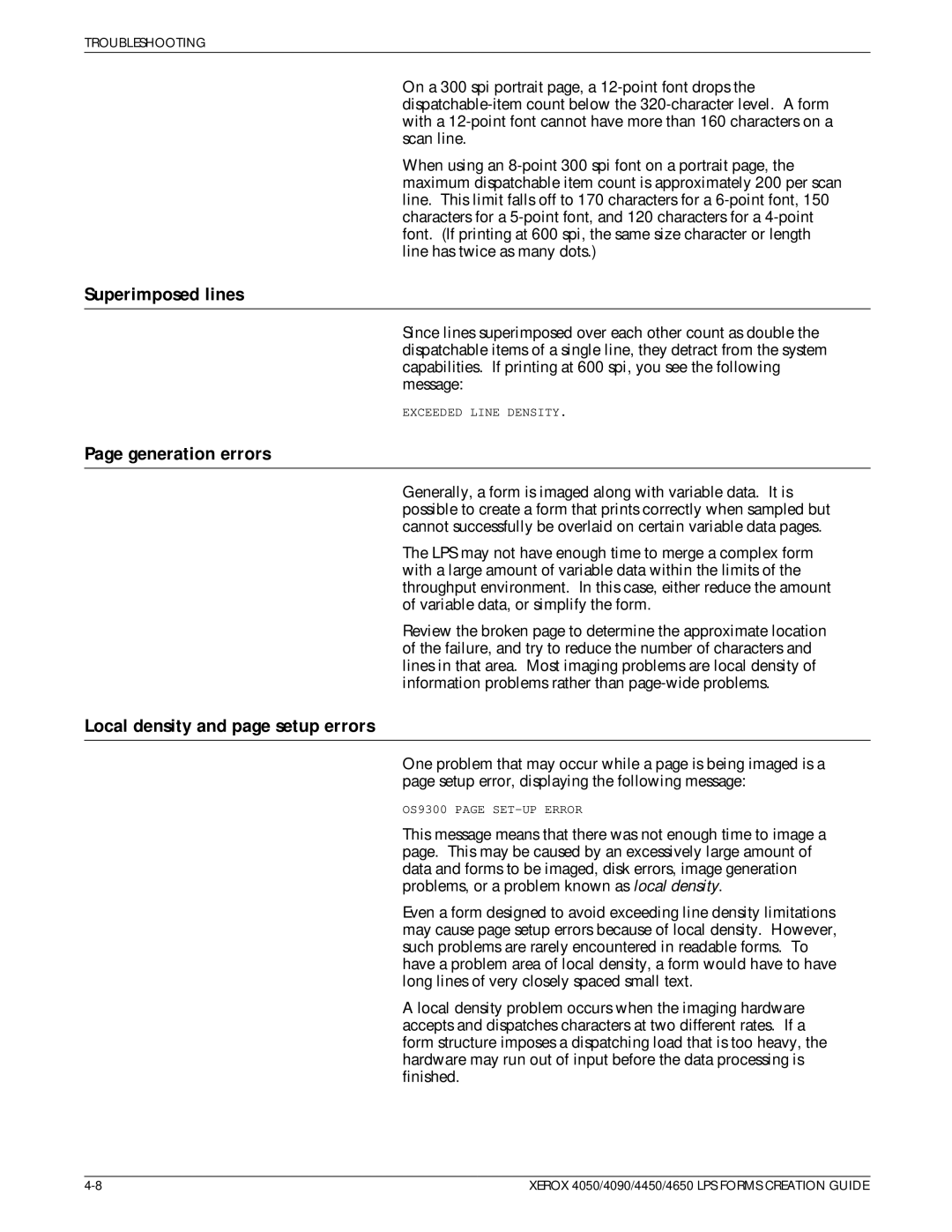
TROUBLESHOOTING
On a 300 spi portrait page, a
When using an
Superimposed lines
Since lines superimposed over each other count as double the dispatchable items of a single line, they detract from the system capabilities. If printing at 600 spi, you see the following message:
EXCEEDED LINE DENSITY.
Page generation errors
Generally, a form is imaged along with variable data. It is possible to create a form that prints correctly when sampled but cannot successfully be overlaid on certain variable data pages.
The LPS may not have enough time to merge a complex form with a large amount of variable data within the limits of the throughput environment. In this case, either reduce the amount of variable data, or simplify the form.
Review the broken page to determine the approximate location of the failure, and try to reduce the number of characters and lines in that area. Most imaging problems are local density of information problems rather than
Local density and page setup errors
One problem that may occur while a page is being imaged is a page setup error, displaying the following message:
OS9300 PAGE
This message means that there was not enough time to image a page. This may be caused by an excessively large amount of data and forms to be imaged, disk errors, image generation problems, or a problem known as local density.
Even a form designed to avoid exceeding line density limitations may cause page setup errors because of local density. However, such problems are rarely encountered in readable forms. To have a problem area of local density, a form would have to have long lines of very closely spaced small text.
A local density problem occurs when the imaging hardware accepts and dispatches characters at two different rates. If a form structure imposes a dispatching load that is too heavy, the hardware may run out of input before the data processing is finished.
XEROX 4050/4090/4450/4650 LPS FORMS CREATION GUIDE |
